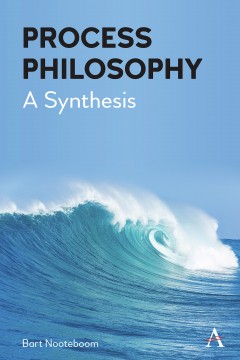Process Philosophy
A Synthesis
By Bart Nooteboom
- About This Book
- Reviews
- Author Information
- Series
- Table of Contents
- Links
- Podcasts
About This Book
Bringing together the ideas of many philosophers, among others Hegel, Kierkegaard, Bergson, Nietzsche, Heidegger, Wittgenstein, Deleuze and Derrida, the book aims to give a coherent synthesis of ideas about change and aims to see how one can take a process view of various features of humanity, such as knowledge, relations between people, language and morality, and how, vice versa, that might contribute to process philosophy. Beginning with evolution and moving on to consider knowledge in its dynamic aspect of learning, the book takes a process view of the individual and society.
Generalised Darwinism is discussed not only in terms of biology but also in economics, organisation, language and science in terms of interactors and replicators. The key processes of variety generation, selection and transmission are fundamentally different from those in biology. Therefore, a theory of knowledge and its change is presented that in some ways is similar to evolution but also different in important ways. This theory discusses neural Darwinism. It proposes how discovery might work, in a cycle of discovery, in an interchange of stability and change, and how differences in cognition work in the combination of different sources (cognitive distance). This theory is applied to knowledge, organisations and science. The discussion explains and applies the notions of entropy and organisational focus. Recognising that absolute, objective truth is problematic, it discusses the notion of warranted assertion. The notions of sense and reference are discussed in an explanation of meaning, and the notions of order and variety in terms of langue and parole, and the role of parole in poetry. The change of meaning is further developed in terms of the hermeneutic circle to deal with order and change of meaning. It uses the notion of a script and the hypothesis of an object bias.
Ethics and morality are explored by how the individual constructs their identity and develops in their tension between authenticity and conformity in society. Aristotle’s multiple causality of action is employed to discuss power and sources of dependence and ways to deal with them. Networks as a source of identity and the decentralisation of governance to communities are discussed along with the notion of restorative justice. The concluding chapter considers the historical development and the different forms of ethics and morality, in relation to institutions, and how in evolution an instinct for benevolence has developed and is related to the intrinsic next to extrinsic value of relationships.
Reviews
’Bart Nooteboom has made award-winning contributions to our understanding of trust, learning, cognition, governance and innovation. In this exciting new book, Nooteboom weaves these threads together by offering a fresh philosophical look at the linguistic, epistemic and ethical foundations of the underlying social processes. Process Philosophy: A Synthesis is essential reading for social scientists and organisation theorists of all stripes.’ — David Gindis, Senior Lecturer, University of Hertfordshire, UK
‘In his new book, Bart Nooteboom has once again excellently succeeded in enriching and questioning existing insights in his own discipline of science, economics, on the basis of insights gained in other scientific disciplines. His book is a wonderful example of how interdisciplinarity enriches both economics and the sciences that help this discipline to sharpen questions. Nooteboom shows very well that economists also help practitioners of other scientific disciplines to ask more precise questions about themes that play a role in their own discipline.’— Paul van Geest, Full Professor of Economics and Theology at the Erasmus School of Philosophy, Erasmus University Rotterdam, Netherlands
“Bart Nooteboom has made award-winning contributions to our understanding of trust, learning, cognition, governance and innovation. In this exciting new book, Nooteboom weaves these threads together by offering a fresh philosophical look at the linguistic, epistemic and ethical foundations of the underlying social processes. Process Philosophy: A Synthesis is essential reading for social scientists and organisation theorists of all stripes.” — David Gindis, Senior Lecturer in Economics, University of Hertfordshire, UK
“In his new book, Bart Nooteboom has once again excellently succeeded in enriching and questioning existing insights in his own discipline of science, economics, on the basis of insights gained in other scientific disciplines. His book is a wonderful example of how interdisciplinarity enriches both economics and the sciences that help this discipline to sharpen questions. Nooteboom shows very well that economists also help practitioners of other scientific disciplines to ask more precise questions about themes that play a role in their own discipline.” — Paul van Geest, Full Professor of Economics and Theology at the Erasmus School of Philosophy (Erasmus University Rotterdam); Full Professor of Church History and History of Theology at Tilburg University; Visiting Professor of the Faculty of Theology of the Catholic University of Leuven
Author Information
Bart Nooteboom was professor of innovation and organisation in Groningen, Rotterdam and Tilburg universities. After a lifelong study of philosophy, he is now focussed on writing philosophy.
Series
Table of Contents
Preface; Foreword by Patricia de Sá Freire; Introduction: Definition of Terms, Purpose and Summary; 1. Evolution; 2. Learning and Truth; 3. Language; 4. Individual and Society; 5. Morality and Ethics; References; Index.
Links
Stay Updated
Information
Latest Tweets



